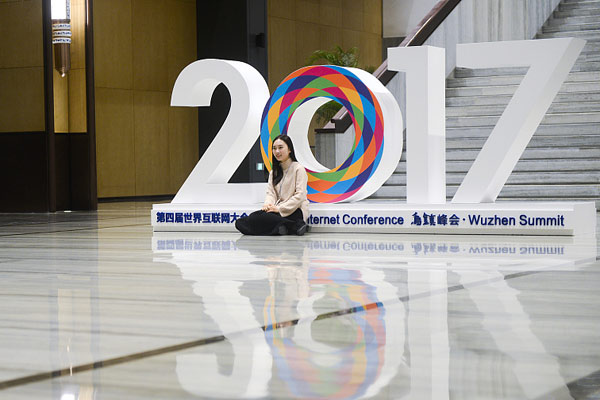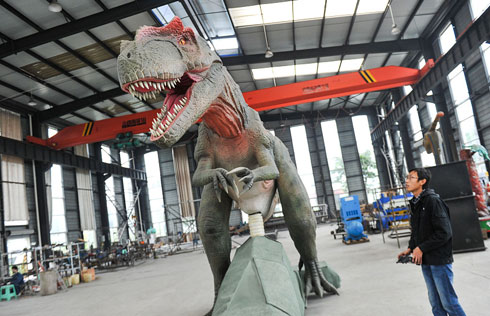

Zoje Europe GmbH, the fully owned unit of Zoje Sewing Machine Co, a sewing machine company in East China's Zhejiang province, has recently completed two major acquisitions in Germany and is considering another.
The company plans to buy the German industrial sewing machine maker Pfaff Industrial to hone its technological strengths, said Chen Yongwu, general manager of Zoje Europe GmbH. If the purchase is successful, Zoje will hold more than 15 percent of the global sewing machine market, and become the world's second largest sewing machine company.
"We expect the Chinese investment wave in Germany to continue for the next five to 10 years," Chen said.
According to Germany Trade and Invest, the official investment promotion agency of Germany, investments from China accounted for 18 percent of the total investments last year. It is estimated that Chinese companies invested $1.47 billion in Germany last year, almost equal to Germany's investments in China.
"Germany is located in the center of Europe. Chinese companies can enter the European market easily by using the 'Made in Germany' tag. We expect to attract more Chinese investment this year," said Benno Bunse, chairman of Germany Trade and Invest.
Investment rationale
However, Cucino of the EU chamber said revenue is not the only factor that is propelling Chinese companies to Europe.
"The foremost reason why Chinese companies want to invest in the EU is of course the European entry point for their products. However, they are not in Europe just for the European market, but also to bring back products to China and even export products to other countries."
In the EU chamber study, 85 percent of the respondents said their main reason for investing in the EU was to gain market access for their products in Europe and to provide goods and services within the EU market.
But "in Europe, for Europe" is not the only purpose, experts say.
Coco Ke Liu, head of business channel development at HLB International, a global network of independent professional accounting firms, said that while some Chinese businesses are investing in Europe to serve the European market, some are also investing here to acquire technologies and brands, which are important resources for success both in the Chinese market and abroad.
In recent years, a growing number of Chinese acquisitions in Europe have been across a diverse range of industries, including food, retail, manufacturing, education, clean technology, industrial technology and healthcare.
Shanghai-based Bright Food Group's purchase of a 60-percent stake in British cereal maker Weetabix Ltd in May last year helped the company gain a well-known and well-trusted British brand.
Chinese construction equipment maker Sany Heavy Industry Co and Chinese private equity company CITIC Group's joint acquisition of Germany's largest concrete pump maker Putzmeister in January last year in a landmark deal allowed China to claim a pillar of the German industry.
Bunse of Germany Trade and Invest said that for Chinese companies which are faced with industrial upgrading issues, investing in European countries such as Germany can help overcome the problems.
 4th World Internet Conference concludes
4th World Internet Conference concludes
 Starbucks Reserve Roastery set to open in Shanghai
Starbucks Reserve Roastery set to open in Shanghai
 Smile to get discounts in Tmall's unmanned supermart
Smile to get discounts in Tmall's unmanned supermart
 Top 10 richest Chinese women in 2017
Top 10 richest Chinese women in 2017
 World leading internet sci-tech achievements released in Wuzhen
World leading internet sci-tech achievements released in Wuzhen
 Top tech CEOs take to the stage as Wuzhen Summit opens
Top tech CEOs take to the stage as Wuzhen Summit opens
 Major topics at 4th World Internet Conference
Major topics at 4th World Internet Conference
 'Made in China' dinosaurs amuse the world
'Made in China' dinosaurs amuse the world